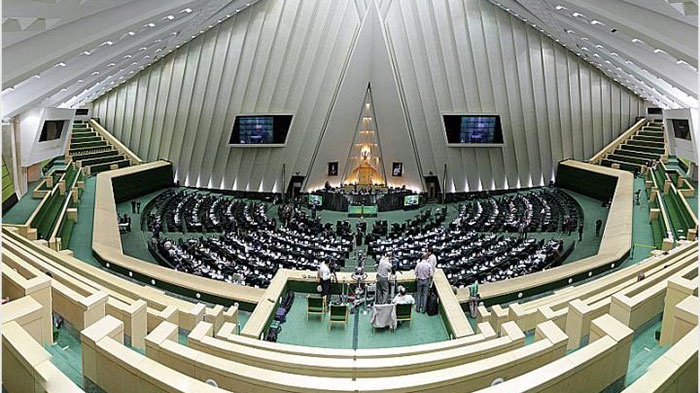New Guardian Council Supervisory Role May Further Constrain Iranian Lawmakers

Since its establishment, the Guardian Council of the Constitution has raised objection from a wide range of political groups for its conduct. The legal body, responsible for approving nominees for parliamentary and presidential elections, and for ratifying bills passed by the parliament, has been especially criticized in the recent years for its ‘approbative’ style of qualifying candidates: a mechanism which relies mostly on judgment call of the twelve members of the legal body rather than transparent criteria. Yet, last Sunday, the Guardian Council Spokesman Abbas-ali Kadkhodaei broke the news that the Council plans to extend its supervision over MPs to embrace their whole term of parliamentary service, saying the self-supervisory system is inefficient.
Those remarks, put together with recent remarks made by the Secretary of the Guardian Council, Ahmad Jannati, sounded the alarm. “Supervision on the representatives should not be a formality” he had said. “Should not any measures be taken when an MP enters Majlis and then it becomes clear that they did not have the necessary qualification? What if they lose qualifications or start to abuse their position and power?”
To many, this meant the Council would have power to disqualify a lawmaker mid-term. The remarks raised concerns that such an extension of powers would hamper the lawmakers’ freedom of expression. Outspoken Deputy Speaker Ali Motahari was among the first to respond. “Clearly, if the supervision extends to include remarks made by MPs, it takes their liberty and independence and we will have ingratiating and complying representatives,” he told ISNA, emphasizing that MPs can already be held accountable and lose their credentials if they commit certain offences beyond their discretion as a lawyer.
Pro-reform MPs later joined in his objection to the remarks. Behrouz Bonyadi, a member of the Hope Bloc, made up of pro-reform and moderate representatives, calls such post-election supervision pointless, expressing hope that the GC spokesman corrects his remarks. “If the attitude [of self-censorship] becomes prevalent among the lawmakers, it will cause compromises in many of their duties,” he said.
In an interview with reform-oriented Vaghaye Daily, Mahmoud Sadeghi, Reformist Tehran MP, also explains the limits of the Council’s right to supervise the lawmakers: “Principle 99 of the Constitution says the Guardian Council supervises every stage of the election. There were differences on whether the supervision was probative or approbative but the council made its own interpretation and asserted that it was approbative. However, it emphasized that its supervision includes every stage of the election. Thus, it ends when the election ends,” he explained. The interview came after he objected in an open parliamentary session that compromises on part of MPs in the face of the Guardian Council’s extrajudicial moves is against the Constitution.
Ardakan Reformist MP Mohammad-Reza Tabesh believes that the extension will not limit the lawmakers freedom of expression because Principles 84 and 86 of the Constitution predicts immunity for the MPs, giving them the right to comment on all the issues.
While former Reformist presidential candidate who won the largest number of votes into the parliament Mohammadreza Aref has declined to comment, Principlist parliamentarians have also timidly criticized the Guardian Council. Seyyed Razi Nouri, who has represented Shoosh since the ninth Majlis, says monitoring possible offences could only affect an MPs qualification in the following term. “The law explicates that the supervision could only be effective before the election,” he added.
Even Mahmoud Bahmani, ex-Chief of Iran’s Central Bank under ex-President Mahmoud Ahmadinejad and in incumbent legislator, deemed it unbefitting for “a group of 5 to 10 individuals”, namely the Guardian Council, to supervise a group of 290 people.
On Wednesday, Kadkhodaei came back with some explanations. “We did not say the Council should play the supervisory role … After the credentials are approved, there has been no procedure for the Council to comment but it was a necessity,” he said. The mechanism for the supervision is not clarified in the election guidelines, he added.
Kadkhodaei may have raised the white flag for now but what is ultimately at stake is that a democratically elected representative, who could also be a president, can be disqualified by the vote of an orthodox Council.

